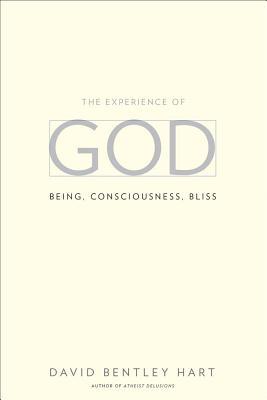This piece and its follow ups are taken from my upcoming book (DV) ‘The Words of the Covenant, Volume 2: New Testament Continuation.’
Although it contains many precious and ascertainable truths, the epistle to the Hebrews is the most elusive book in the NT. For such a weighty NT book to be anonymous is surprising. However, that aside, what I want to do in my treatment of this letter (or perhaps it is better to call it a sermon) is to first try to set out its basic emphases and its Christian teaching. After that I want to look at how the author incorporates the covenants. Finally, and somewhat controversially, I will ask about the distinctively Jewish flavor of Hebrews before facing the famous warning passages head-on and asking whether they can be reconciled with Pauline theology.[1]
Please do not misunderstand me. I am certainly not saying that the NT contradicts itself. What I am saying is that when one permits each NT author to say what he says sometimes it becomes necessary to ensure that one is not trying to fit square pegs into round holes. This is apparent when the Gospels are compared to Paul’s epistles; say when Matthew 10 is compared with Galatians 3, or when John the Baptist’s and Jesus’ cross-less and resurrection-less “gospel of the kingdom” (Matt. 4:23. Cf. Matt. 3:2) is examined alongside of Paul’s gospel of 1 Corinthians 15:1-4. The reader must understand the contextual differences if he is not to run into difficulty with one or both of these texts. If he does not look well to what he is doing, he will find that he will be forced to add Pauline doctrine into the early chapters of the Gospels in order to fill out John the Baptist’s and Jesus’ messages. But once that is done, he will have to stay quiet about the ignorance of the disciples in Mark 9:31-32; 16:14 and Luke 18:31-34 (cf. John 2:19-22),[2] or the fact that the Holy Spirit was not given to believers in Jesus until after His ascension (Jn. 7:37-39). We even run into this phenomenon in the transitional book of Acts where in Acts 2 baptism seems necessary in order for the Spirit to be received (Acts 2:38).[3] This doesn’t sit well with Paul’s distancing of baptism from the essence of the Gospel in 1 Corinthians 1:17.
In a similar way we must face anomalies between Paul and the author of Hebrews. The author of Hebrews writes in a fashion much more consistent with classical standards of the time. His arguments are very carefully structured and precise, not like the occasional nature of Paul’s correspondence with their frequent digressions. Hebrews is, in the words of Harold Attridge,
the most elegant and sophisticated, and perhaps the most enigmatic, text of first-century Christianity…Its argumentation is subtle; its language refined; its imagery rich and evocative.[4]
Whoever wrote this work knew what they wanted to say and how to say it. Another difference from Paul is to be seen, for example, when the apostle’s doctrine of eternal security is set alongside Hebrews’ warning passages. I will have to do some explaining of the various approaches to these passages in the literature, but at the risk of sounding a little high-minded none of them in my opinion adequately deal with all the details found in the paraenesis (i.e., warning, exhortation) passages, especially the major ones in Hebrews 2:1-4; 3:7-19; 5:11-6:12; 10:19-39, and 12:14-29. As we will see, these warnings go way beyond divine saber-rattling.
Hebrews is notable for its “constant alternation of instructional and hortatory passages”[5] and its negation of the cultic aspects of the Mosaic covenant.[6] The warning passages play a major role in the exhortatory power of the message. There is a “rest” to enter (Heb. 4); a future that is as yet open-ended in the sense that many of the promises are still ahead.
Why “to the Hebrews”?
Without entering into the text-critical questions surrounding the book, we should note its title (which is found in the Greek manuscripts). What is one to make of this post-ascension (circa 64 A.D.) work being directed to “the Hebrews” and not to Christians generally? I grant that the vast majority of scholars hold that “Hebrews” is not its title. I do not believe that. To think that an ancient document like this began life without a title is too much for me to swallow. The book has always been known as “Hebrews” and not as anything else. Besides, the contents of the work is plainly Jew-focused. We are all aware of the contrasts in the epistle between the “old [Mosaic] covenant” and the “New covenant” (e.g., Heb. 9:15), and between the Levite High Priesthood and the Melchizedekian High Priesthood (Heb. 7). But there is also a contrast between “Mount Sinai” and “Mount Zion” (Heb. 12:18-24), and there is mention of entering into rest and its comparison with the Canaanite conquest (Heb. 3:18, 4:1-11), and of the Sabbath (Heb. 4:4); the contrast between the two “houses”; those of Moses and Jesus (Heb. 3:1-6). Then there are the two sanctuaries (Heb. 8:2, 5), and the two High Priestly sacrifices (Heb. 9:6-28). When one sits back and really reflects on these things the Israelite flavor of the book comes into prominence and needs to be taken seriously.
Stranger still, what about those continuous warning passages scattered throughout the book? Although many attempts have been made to dampen the wording, none of them are successful. Why such stark language about “an evil heart of unbelief” causing a fissure between them and God? Is it possible for a true Christian to depart “from the living God” (Heb. 3:12)? How is it that a person can find themselves in a position where there is “no place for repentance” (Heb 12:17)? The nature of Hebrews 6:4-6 and 10:26-31 needs to be attended to with eyes that will see what the writer is really saying and not through the eyes of Paul. The author of Hebrews has been shown to leave nothing to chance, but to be a very deliberate and skillful communicator. Let the chips fall where they may, both authors are equally inspired, and neither ought to be read through the other.
Mention of the author of Hebrews, whoever he may be, brings up another puzzle: this writer has left us a complex and carefully crafted piece of work in good Greek and with a worked out structural dynamic. He knows what he wants to say, and he says it. The Catholic scholar Albert Vanhoye, who is one of the go-to scholars on the book, stated, “the author of the Epistle has structured his work with great care and has made use of fixed literary devices to indicate what he has done.”[7] This intentionality of the author has to be kept in the mind of the reader of his book as it is read. If we won’t face that fact, then we cannot say that we have done him justice; nor indeed the Holy Spirit who inspired the words.
Then there is the particular “flavor” of the book. It is more “Jewish” than it is ecclesial, more homiletical than epistolary, more parenetic or hortatory than didactic. Decker agrees with Vanhoye, Guthrie, and Lane that the main thrust of the book is hortatory (that is, it is an extended exhortation). He writes:
“This means that the exhortations (warning passages) are the primary thrust of the book. The expository sections serve as the doctrinal foundations for those warnings.”[8]
Thus, the difficulties with which the Christian interpreter is presented by the warning passages must be faced head-on, not folded awkwardly to fit onto a Pauline shelf.
But also, Hebrews is prophetic. As I hope to show, it would not be out of place (aside from the obvious teaching about Jesus) settling in with one of the Minor Prophets with its repeated rallying calls for perseverance and its eschatological bent.
For these reasons I have called the book an enigma. There is a way into it that will not be found through Pauline assumptions, even if there are many affinities in the doctrine of the two authors. Like in most things, the issue is not the similarities but in the differences. As always, the devil is in the details. Therefore, as uncomfortable as it may be to stare at the chapters without calling Paul in to help, I shall be looking at Hebrews on its own as I expound the main covenantal teaching of the letter.
[1] Let me state that I am aware of the work of Ben Witherington III and his essay “The Influence of Galatians on Hebrews,” New Testament Studies, Vol. 37, 1 (Jan. 1991), 146-152. Interesting as this paper is, it does not materially impact my discussion here.
[2] In Matthew 16:20 Jesus “commanded His disciples that they should tell no one that He was Jesus the Christ.” That would have made preaching Paul’s Gospel pretty hard to say the least.
[3] I appreciate the efforts of those who wish to say that the Spirit is given upon repentance and baptism is included with repentance, but the verse does imply that “remission of sins” was not offered without baptism.
[4] Harold W. Attridge, Hebrews: A Commentary on the Epistle to the Hebrews, Philadelphia, Hermeneia, Fortress, 1989, 1.
[5] Peter Stuhlmacher, Biblical Theology of the New Testament, 528.
[6] It does not negate the moral aspects.
[7] Rodney J. Decker, “The Intentional Structure of Hebrews,” in Journal of Ministry and Theology, 04:2 (Fall, 2000), 98. As a good introduction to these matters, I recommend Decker’s article. As with all Decker’s work it maintains high standards of scholarship with faithful adherence to Scripture.
[8] Ibid, 104.


5 comments On The Enigmatic Book of Hebrews (Pt. 1)
Dr. Henebury,
I’ve followed and appreciated your work for years. This particular topic is of great interest to me. I look forward to the book that will contain the material in this article.
Dr, I think that your approach to this topic will be very interesting. It after reading this seems that you are preparing us for some type of division between Hebrew, believers and Gentile believers. That can possibly be done if one ignores Paul’s epistles, but; then maybe that division is not your intent? So I, too, will look forward to the book.
Thankyou Trent. I’m slowly getting near to completion of vol. 2. I warn you that I’m bound to upset people in some areas, but I have tried to give reasons for my positions. What’s more important to me is not whether folks agree with me in everything (I only know one guy who does that, and he’s been known to change his mind), but which fruitful directions might be opened up for further study.
Blessings to you and yours,
Paul H
As interesting and thought-provoking as always from the good Doctor. Look forward to the next in this series, and to the upcoming new book!
Well Dr. you always get my brain churning.
Even seeing myself as a dyed-in-the-wool premillenial dispensationlist who still reads his Darby Bible, you have angles I have never considered. I am uncomfortable and intrigued.